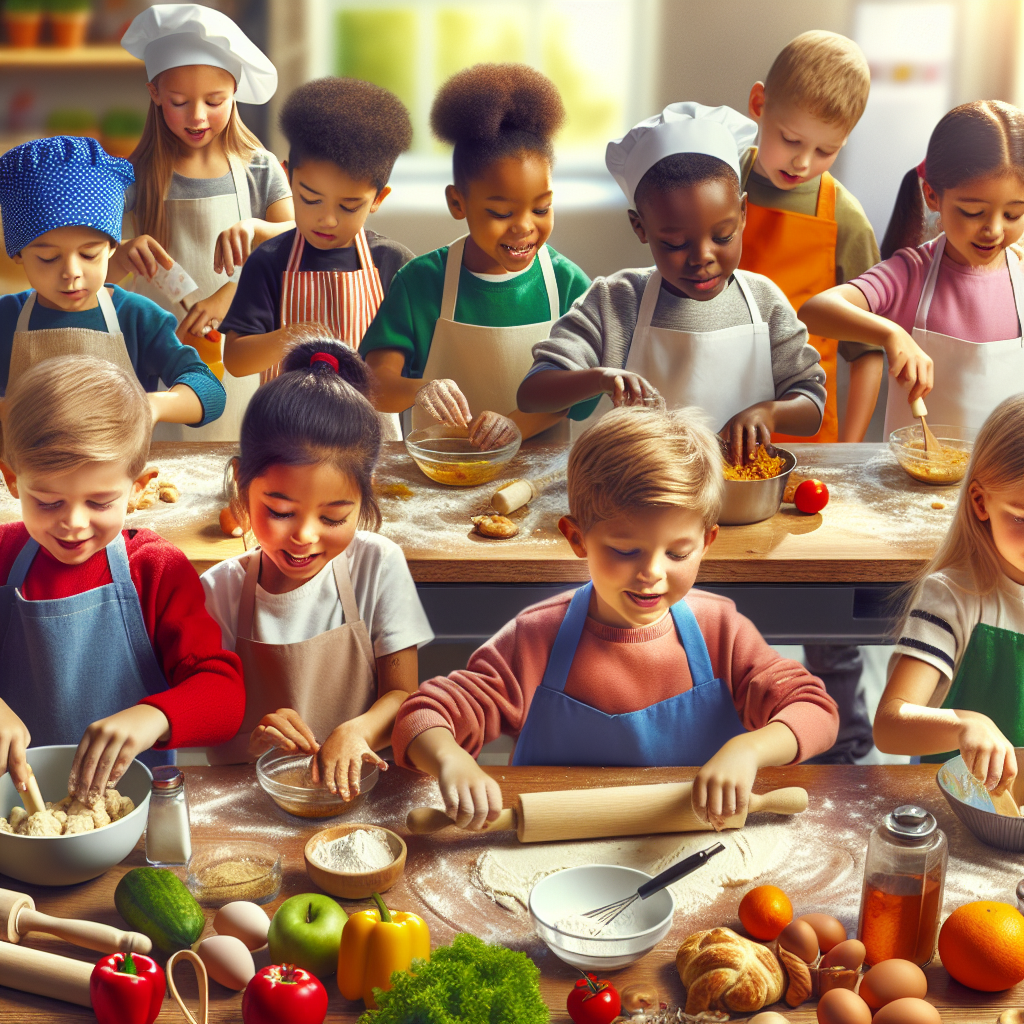Cooking is often seen as a practical life skill, but its benefits extend far beyond just filling a plate. For children, engaging in cooking activities can be an enriching experience that fosters the development of essential life skills. From cognitive skills to social development, the kitchen serves as a vibrant classroom where kids can learn and grow. Here’s a look at some of the key skills that cooking can help develop in children.
1. Mathematical Skills
Cooking involves various measurements and conversions, providing a hands-on way to practice math. Kids learn to use fractions when measuring ingredients, which reinforces their understanding of the concepts taught in school. For example, doubling a recipe requires an understanding of multiplication, while halving it brings division into play. Through these activities, children become more comfortable with numbers and gain practical applications for their math skills.
2. Reading and Comprehension
Recipes are written instructions, which allow children to practice reading skills. As they learn to decode the steps and ingredients, they also develop comprehension skills by understanding the sequence of actions required. This activity can enhance vocabulary, especially when encountering new culinary terms. Engaging children in reading recipes not only helps them understand written language better but also promotes a sense of accomplishment when they successfully create a dish.
3. Problem-Solving Skills
Cooking frequently involves problem-solving, whether it’s figuring out how to adjust a recipe based on available ingredients or addressing issues that arise during the cooking process, such as overcooking or undercooking. Kids learn to adapt and think critically, which enhances their ability to tackle challenges efficiently. This skill fosters resilience and creativity, encouraging them to approach problems with a positive mindset.
4. Motor Skills and Coordination
Chopping, mixing, and measuring involve various motor skills that can significantly improve a child’s hand-eye coordination and fine motor skills. Tasks such as whisking or kneading dough require them to develop dexterity and strength in their hands. These physical skills are crucial for young children, as they lay the foundation for later activities such as writing, drawing, and playing sports.
5. Teamwork and Social Skills
Cooking can be a collaborative activity, especially when done with family or friends. This engagement fosters teamwork, as kids learn to communicate effectively, share responsibilities, and work towards a common goal. Through cooking together, children cultivate patience, empathy, and understanding—essential social skills that will benefit them in various aspects of their lives.
6. Nutritional Knowledge and Healthy Eating Habits
Involving children in the cooking process educates them about nutrition and the importance of healthy eating habits. Understanding where food comes from and the nutritional value of various ingredients encourages informed choices. Kids who help in preparing meals are more likely to try new foods, develop a varied palate, and appreciate the effort that goes into healthy cooking, fostering a lifelong commitment to wellness.
7. Creativity and Self-Expression
The kitchen can be a canvas for creativity. Kids can experiment with flavors, textures, and presentation, allowing them to express themselves through food. This creative process helps children think outside the box and develop their unique cooking styles. The freedom to explore and innovate fosters a sense of ownership and pride in their culinary creations.
8. Life Skills and Independence
Finally, cooking equips children with vital life skills that promote independence. Knowing how to prepare meals empowers them to take charge of their diets and make choices that affect their health. As they become more proficient in the kitchen, they gain confidence, a crucial component of personal development. This independence can translate into other areas of their lives, inspiring them to take on new challenges.
Conclusion
Cooking is more than just a means to an end; it is a multifaceted activity that enriches children’s lives in numerous ways. By developing essential skills through cooking, children not only learn how to nourish themselves but also gain confidence, creativity, and a greater understanding of the world around them. So, whether you’re baking cookies or whipping up a family dinner, remember that every stir of the spoon is an opportunity for growth and learning. Encourage your children to join you in the kitchen and watch them flourish as they discover the joys and benefits of cooking.

